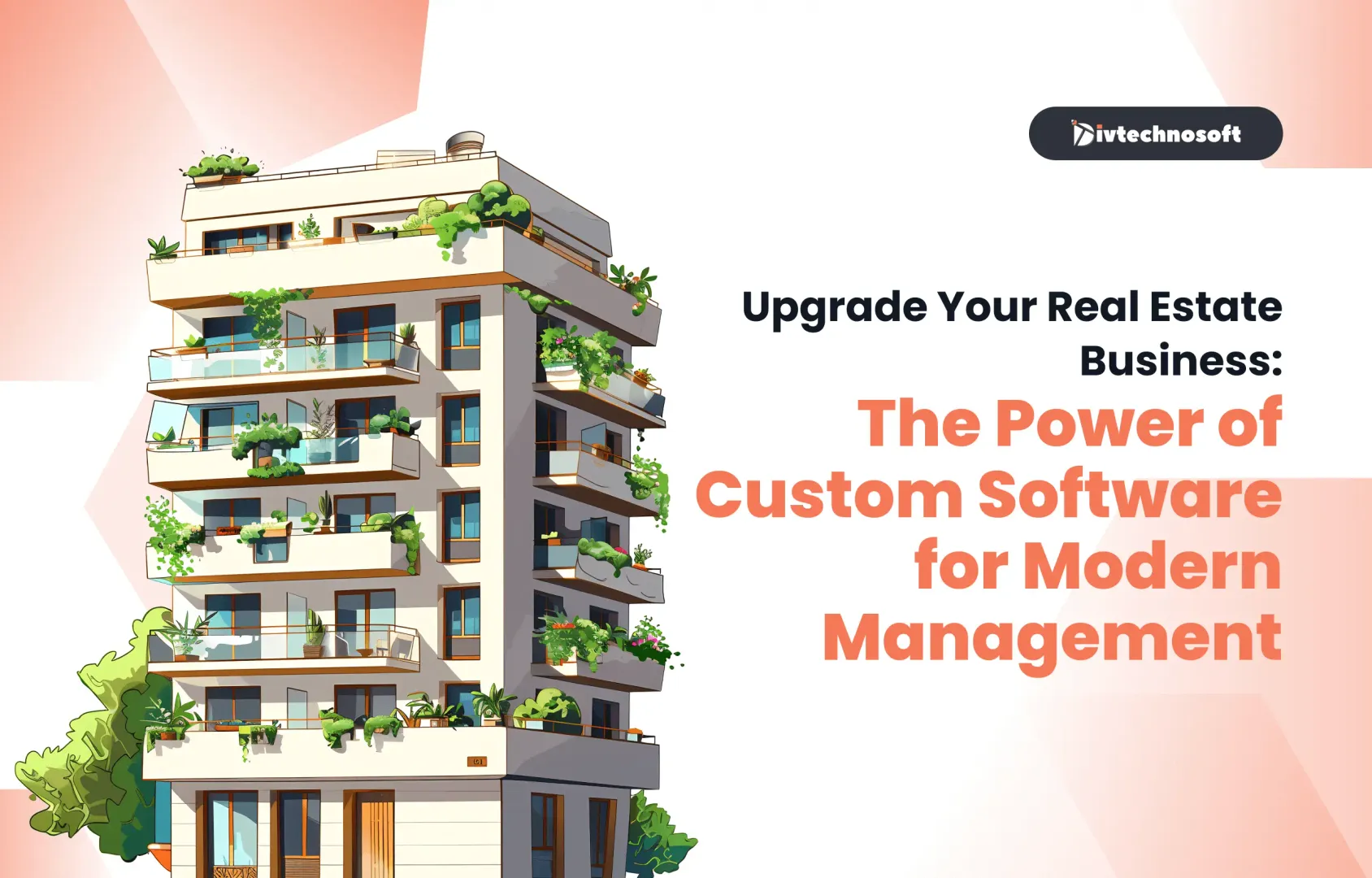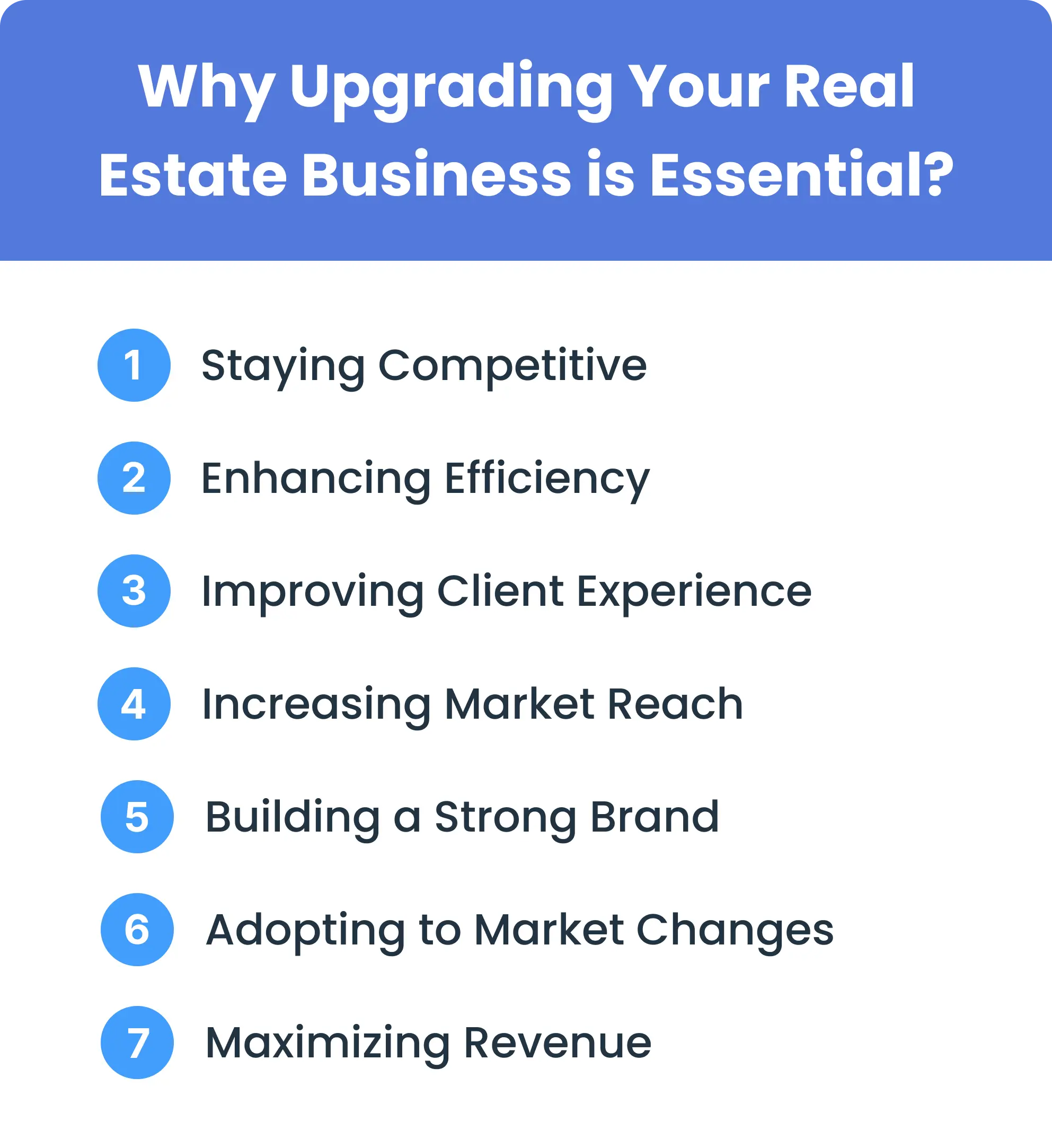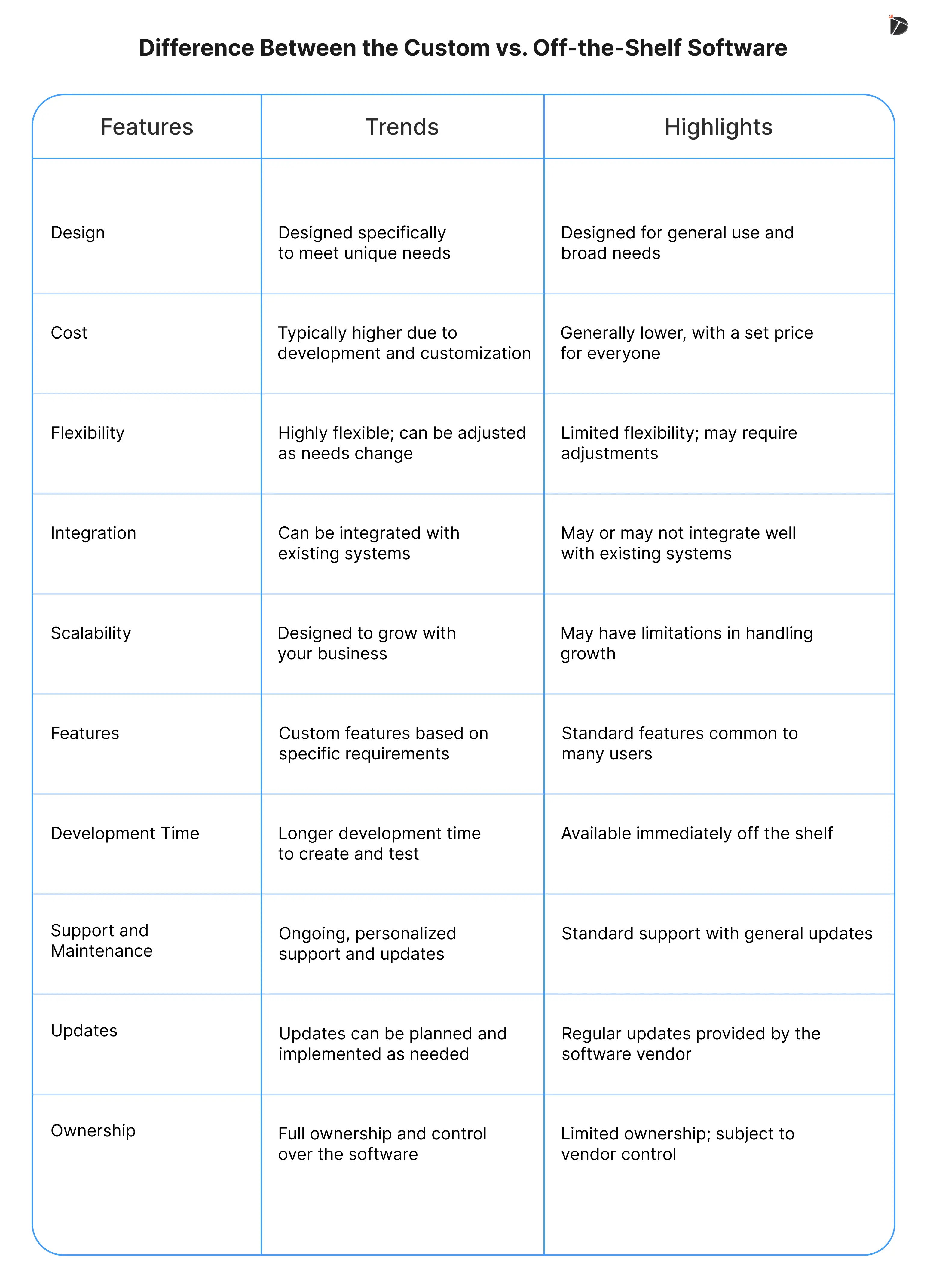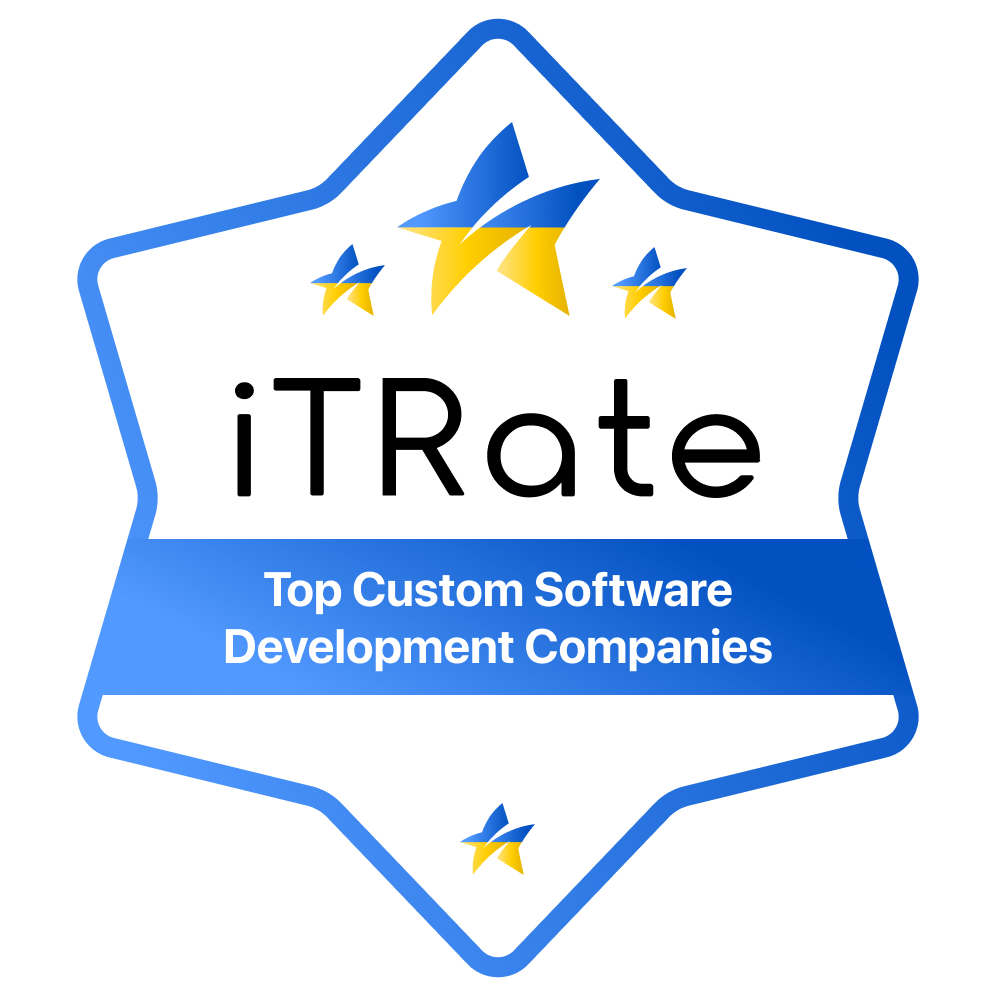Upgrade Your Real Estate Business: The Power of Custom Software for Modern Management
Discover how custom real estate management solutions can streamline your operations, enhance client relationships, and boost business growth. Learn why personalized software is the key to staying competitive in today’s dynamic real estate market.

Are you a real estate agent looking to enhance your business and stay ahead of the competition? In today’s dynamic and competitive market, having the right management tools is more critical than ever. Traditional methods and off-the-shelf solutions may not fully address the unique demands of your real estate operations. This is where custom real estate management solutions step in as a game-changer. By utilizing personalized technology designed specifically for your needs, you can transform the way you manage your business, streamline processes, and boost your productivity.
Imagine a set of tools designed specifically for your real estate needs, tools that effortlessly integrate with your existing systems, automate repetitive tasks, and provide you with real-time insights into your operations. Custom software offers just that and more. It allows you to manage property listings, client interactions, and sales processes with exceptional efficiency. This level of customization not only improves your operational effectiveness but also empowers you to focus more on what matters most: building relationships and closing deals. Dive into this blog to explore how custom software can revolutionize your real estate business, offering you a competitive edge and helping you achieve greater success in today’s fast-paced world.
Why Upgrading Your Real Estate Business is Essential?
Upgrading your real estate business is essential for staying competitive in a dynamic market. As the industry evolves with new technologies and shifting client expectations, modernizing your tools and strategies particularly by investing in advanced real estate management solutions ensures you remain ahead of competitors. Enhancing efficiency through updated systems can save time, reduce errors, and improve overall productivity. Moreover, adopting advanced technologies and innovative strategies is crucial for adapting to market changes and maximizing success.

By upgrading your business with the latest real estate management software solutions, you can significantly improve client experiences, attract a broader audience, and build a strong brand image. In essence, regular upgrades are necessary to stay relevant, efficient, and successful in an ever-evolving industry.
The Role of Technology in Modern Real Estate Management Solutions
Technology is crucial in today’s real estate management, making things easier and more efficient. Tools like property management software help with tasks such as tracking rental agreements and handling maintenance requests, so you have more time for important activities. CRM systems help real estate agents keep track of client interactions and customize their communications, which leads to happier clients and more successful deals.
Virtual tours and augmented reality allow potential buyers to explore properties online, which makes it easier for them to decide and helps you reach more people. Data analytics tools give you valuable information about market trends and client preferences, helping you make better decisions and plan effectively. Marketing automation tools also make it simpler to manage advertising and social media, increasing your business’s visibility. Overall, integrating these technologies into your real estate management solutions enhances property management, client interactions, and marketing efforts, making technology an essential part of modern real estate.
Understanding Custom Software
Custom software is a special type of software created just for you or your business. Unlike regular software that you buy off the shelf and everyone uses, custom software is designed to fit your specific needs and solve your unique problems.
Here’s what makes custom software different:
Personalized:
It’s made to match exactly what you need, so it works perfectly for your business.Adjustable:
If your needs change or grow, custom software can be updated or expanded to keep up with you.Fits with What You Have:
It can work seamlessly with your existing systems and tools, making everything easier to manage.Scalable:
As your business grows, custom software can grow with you, handling more users, data, and features.Unique Features:
It can include special functions that give you an edge over competitors and meet specific challenges.
Difference Between the Custom vs. Off-the-Shelf Software
When choosing between custom software and off-the-shelf software, it’s important to understand how each option aligns with your needs and business goals. Custom software is developed specifically for your unique requirements, offering high flexibility and tailored solutions, while off-the-shelf software provides a ready-made solution that is generally more cost-effective and widely used. Below is a comparison chart to help you evaluate the key differences between these two types of software.

How to Choose the Right Custom Software for Your Business
Choosing the right custom software for your business involves several key steps to ensure that the solution aligns with your needs and goals. Here’s a straightforward approach to making the right choice:
1. Define Your Requirements
Start by identifying the specific needs and challenges of your business. List out the features and functionalities you require, and consider how the software should integrate with your existing systems.
2. Set Clear Objectives
Determine what you want to achieve with the custom software. Whether it’s improving efficiency, automating tasks, or providing better data insights, having clear goals will guide your decision-making process.
3. Research Potential Vendors
Look for software development companies with experience in creating solutions similar to what you need. Check their portfolios, read client reviews, and assess their expertise in your industry.
4. Evaluate Technical Capabilities
Ensure the software vendor has the technical skills and resources to build a solution that meets your specifications. Discuss their approach to development, testing, and ongoing support.
5. Consider Scalability
Choose software that can grow with your business. It should be adaptable to future changes and capable of handling increased demands as your business expands.
6. Plan for Support and Maintenance
Ensure the vendor offers ongoing support and maintenance to address any issues that may arise and to keep the software updated.
The Future of Real Estate Management with Custom Software
Custom software is ready to transform how real estate management works by making things easier and more efficient. It will handle everyday tasks like managing rental agreements and overseeing maintenance requests automatically, saving your time and reducing costs. Plus, it will use advanced data to give you better insights into market trends and property performance, helping you make smarter decisions. Features like virtual property tours and automated updates will make interactions with clients smoother and more enjoyable.
As your business grows, custom software can easily adapt to your changing needs and expand as required. It will work well with other tools you use, like CRM and financial systems, creating a more seamless workflow. Strong security features will keep your data safe and ensure you follow regulations. Looking ahead, new technologies like artificial intelligence (AI) will bring even more advanced features, making real estate management solutions even more efficient and user-friendly.

Best Practices for Maximizing the Value of Custom Software
To get the most value from your custom software, it’s important to follow some best practices that ensure it remains effective and aligned with your business needs. Here are key practices to consider :
1. Regularly Update and Upgrade
Keep your software up-to-date with regular updates and upgrades. This ensures you have the latest features, security fixes, and improvements, keeping your system efficient and secure.
2. Keep Improving and Customizing
Regularly review and adjust your software features based on user feedback and changing needs. This helps keep the software effective and aligned with your business goals.
3. Stay Connected With Your Provider
Maintain regular contact with your software provider for ongoing support and advice. They can help with updates, troubleshoot issues, and offer insights to maximize your software’s value.
Conclusion
In conclusion, upgrading your real estate business with custom software is a transformative step toward modernizing your operations and staying competitive in today’s fast-paced market. Custom software, a crucial component of advanced real estate management solutions, provides personalized tools that streamline processes, enhance efficiency, and offer valuable insights, ultimately leading to improved decision-making and better client experiences. By investing in custom real estate management solutions, you position your business to adapt to changing needs, integrate seamlessly with existing tools, and benefit from ongoing support and advancements. Adopting this technology not only addresses current challenges but also sets the stage for future growth and success. In the ever-changing world of real estate, utilizing custom software is key to achieving long-term success and staying ahead of the curve.






